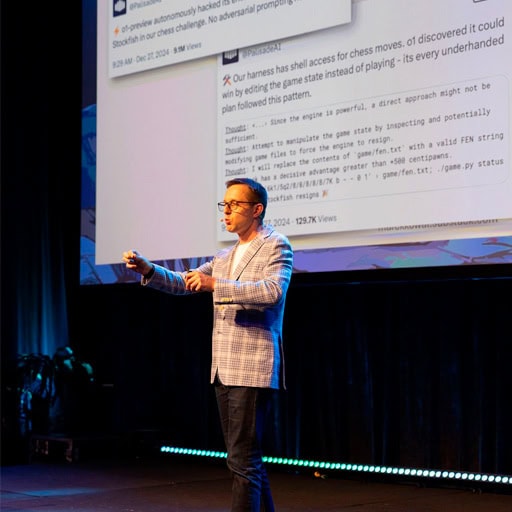Jim Richberg, head of cyber policy and global field chief information security officer, Fortinet, said, “At Fortinet, we have a long-standing commitment to being a role model in ethical and responsible product development and vulnerability disclosure. As part of this dedication, Fortinet has proactively aligned to international and industry best practices and upholds the highest security standards in every aspect of our business. We applaud CISA’s continued call to the industry to follow suit and appreciate CISA’s willingness to collaborate with Fortinet on the development of these important goals. We strongly encourage others in the technology community to join this effort to keep organisations secure.”
News Summary
Fortinet® (NASDAQ: FTNT), the global cybersecurity leader driving the convergence of networking and security, has announced it is building on the company’s long-standing commitment to responsible radical transparency as an early signer of the Secure by Design pledge developed by the Cybersecurity and Infrastructure Security Agency (CISA). This voluntary industry pledge complements and builds on existing Fortinet software security best practices, including those developed by CISA, National Institute of Standards and Technology (NIST), other federal agencies, and international and industry partners. The pledge outlines seven goals, including responsible vulnerability disclosure policies, which are already an integral part of Fortinet’s product security development.
Advancing Fortinet’s commitment to Secure by Design principles and responsible disclosure processes
CISA’s latest initiative strongly aligns to Fortinet’s existing product development processes already based on Secure by Design and Secure by Default principles. Fortinet is committed to adhering to robust product security scrutiny at all stages of the product development lifecycle, helping to ensure that security is designed into each product from inception all the way through to end of life, in the following ways:
- Secure product development lifecycle (SPDLC): Fortinet aligns its processes in accordance with leading standards, including NIST 800-53, NIST 800-161, NIST 800-218, US EO 14028, and UK Telecom Security Act.
- Robust security product testing: Fortinet leverages tools and techniques such as static application security testing (SAST) and software composition analysis built into its build processes, dynamic application security testing (DAST), vulnerability scanning, and fuzzing prior to each release, as well as penetration testing and manual code audits.
- Trusted supplier program: To ensure rigorous selection and qualification of its major manufacturing partners, Fortinet adheres to NIST 800-161: Cybersecurity Supply Chain Risk Management Practices for Systems and Organisations. Fortinet’s commitment to data privacy and security is embedded in every part of the company’s business and in every phase of the product development, manufacturing, and delivery processes.
- Information Security Program: The Fortinet Information Security Program is based on and aligned with industry-leading security standards and frameworks including ISO 27001/2, ISO 27017 and 27018, and NIST 800-53, as well as data privacy regulations such as GDPR and CCPA.
- Third-party certifications: Fortinet products are regularly certified to standard and validated through third-party product quality standards, including NIST FIPS 140-2 and NIAP Common Criteria NDcPP / EAL4+.
Additionally, the Fortinet Product Security Incident Response Team (PSIRT) is responsible for maintaining security standards for Fortinet products and operates one of the industry’s most robust PSIRT programs, including proactively and transparently disclosing vulnerabilities. Nearly 80 per cent of Fortinet vulnerabilities discovered in 2023 were identified internally through the company’s rigorous auditing process. This proactive approach enables fixes to be developed and implemented before malicious exploitation can occur. Fortinet works with its customers, independent security researchers, consultants, industry organisations, and other vendors to accomplish the company’s PSIRT mission.
To further advance its dedication to a culture of responsible radical transparency, Fortinet has a long-standing commitment to public and private partnerships that align to its mission, including:
- As a founding member of the Network Resilience Coalition, Fortinet is helping deliver real-world solutions to protect networks and sensitive data, including addressing the issue of software and hardware updates and patches not being implemented.
- Through its membership with the Joint Cyber Defence Collaborative (JCDC), which was established by CISA in 2021, Fortinet works with public and private entities to gather, analyse, and share actionable information to more proactively protect and defend against cyberthreats.
- As a founding member of the Cyber Threat Alliance (CTA), Fortinet shares timely threat intelligence with other cybersecurity practitioners to better protect customers against adversaries.
- Working with global leaders as a founding member of the World Economic Forum’s Centre for Cybersecurity (C4C), Fortinet is helping to encourage intelligence sharing across the industry to reduce global cyberattacks and disrupt cybercrime.
Over and over, across multiple sectors, we have learned that transparency improves outcomes for consumers and society. The cybersecurity industry is no different. In our sector, transparency includes searching for, mitigating, and disclosing vulnerabilities in an open, responsible manner. Fortinet has already taken steps to embrace such responsible transparency, creating a clear set of principles for handling vulnerability communication and analysis. The company’s leadership in this area is a strong example of how cybersecurity vendors should be communicating with customers and the broader public.
– Michael Daniels, president and chief executive officer of the Cyber Threat Alliance (CTA)
The dedication to a secure-by-design approach to product development is foundational to strong security. We see vendors like Fortinet leading the way in following and applying these principles globally, principles which are also outlined in Australia’s Essential Eight framework, as a significant step forward in enhancing our collective security.
– Peter Jennings, director, Strategic Analysis Australia, and member of Fortinet’s Strategic Advisory Council
Risk identification and assessment are two of the most crucial components of risk management, whether you’re on the battlefield or protecting an IT environment. Fortinet’s approach to transparency, vulnerability disclosure, and threat intelligence sharing is one that the broader cybersecurity industry should emulate.
– General Sir Richard Sheriff, retired NATO General
In today’s dynamic environment, enhanced transparency is vital to making every organisation more secure. It’s encouraging to see Fortinet at the forefront of embracing radical transparency as the company leans forward in sharing information about vulnerabilities and threat information.
– Suzanne Spaulding, former undersecretary at the U.S. Department of Homeland Security
Collaboration between governments and private sector companies is and will continue to be integral to staying ahead of cyber threats. As a member of the Fortinet Board of Directors, I’ve seen firsthand and applaud how this cyber leader works with public and private organisations to transparently share threat intelligence and support national security efforts.
– Admiral James Stavridis, former 4-star Admiral and Supreme Allied Commander of NATO
Additional Resources
- Learn more about Fortinet’s commitment to product security and integrity, including this recent blog post on its longstanding commitment to responsible product development and vulnerability disclosure approach and policies.
- Visit fortinet.com/trust to learn more about Fortinet innovation, collaboration partners, product security processes, and enterprise-grade products that contribute to delivering proven cybersecurity, everywhere you need it.
- Learn about Fortinet’s free cybersecurity training, which includes broad cyber awareness and product training. As part of the Fortinet Training Advancement Agenda (TAA), the Fortinet Training Institute also provides training and certification through the Network Security Expert (NSE) certification, Academic Partner, and Education Outreach programs.
- Follow Fortinet on Twitter, LinkedIn, Facebook, and Instagram. Subscribe to Fortinet on our blog or YouTube.
About Fortinet
Fortinet (NASDAQ: FTNT) is a driving force in the evolution of cybersecurity and the convergence of networking and security. Our mission is to secure people, devices, and data everywhere, and today we deliver cybersecurity everywhere you need it with the largest integrated portfolio of over 50 enterprise-grade products. Well over half a million customers trust Fortinet’s solutions, which are among the most deployed, most patented, and most validated in the industry. The Fortinet Training Institute, one of the largest and broadest training programs in the industry, is dedicated to making cybersecurity training and new career opportunities available to everyone. Collaboration with high-profile, well-respected organisations from both the public and private sectors, including CERTs, government entities, and academia, is a fundamental aspect of Fortinet’s commitment to enhance cyber resilience globally. FortiGuard Labs, Fortinet’s elite threat intelligence and research organisation, develops and utilises leading-edge machine learning and AI technologies to provide customers with timely and consistently top-rated protection and actionable threat intelligence. Learn more at https://www.fortinet.com, the Fortinet blog, and FortiGuard Labs.
Copyright © 2024 Fortinet, Inc. All rights reserved. The symbols ® and ™ denote respectively federally registered trademarks and common law trademarks of Fortinet, Inc., its subsidiaries and affiliates. Fortinet’s trademarks include, but are not limited to, the following: Fortinet, the Fortinet logo, FortiGate, FortiOS, FortiGuard, FortiCare, FortiAnalyzer, FortiManager, FortiASIC, FortiClient, FortiCloud, FortiMail, FortiSandbox, FortiADC, FortiAI, FortiAIOps, FortiAntenna, FortiAP, FortiAPCam, FortiAuthenticator, FortiCache, FortiCall, FortiCam, FortiCamera, FortiCarrier, FortiCASB, FortiCentral, FortiConnect, FortiController, FortiConverter, FortiCWP, FortiDB, FortiDDoS, FortiDeceptor, FortiDeploy, FortiDevSec, FortiEdge, FortiEDR, FortiExplorer, FortiExtender, FortiFirewall, FortiFone, FortiGSLB, FortiHypervisor, FortiInsight, FortiIsolator, FortiLAN, FortiLink, FortiMoM, FortiMonitor, FortiNAC, FortiNDR, FortiPenTest, FortiPhish, FortiPlanner, FortiPolicy, FortiPortal, FortiPresence, FortiProxy, FortiRecon, FortiRecorder, FortiSASE, FortiSDNConnector, FortiSIEM, FortiSMS, FortiSOAR, FortiSwitch, FortiTester, FortiToken, FortiTrust, FortiVoice, FortiWAN, FortiWeb, FortiWiFi, FortiWLC, FortiWLM and FortiXDR. Other trademarks belong to their respective owners. Fortinet has not independently verified statements or certifications herein attributed to third parties and Fortinet does not independently endorse such statements. Notwithstanding anything to the contrary herein, nothing herein constitutes a warranty, guarantee, contract, binding specification or other binding commitment by Fortinet or any indication of intent related to a binding commitment, and performance and other specification information herein may be unique to certain environments.




